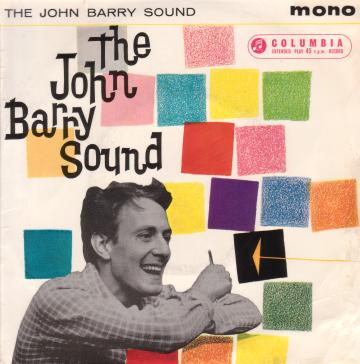|
John Barry's early years were heavily influenced by the cinema because his father owned and ran several theatres and cinemas in the North Of England. John began to take music seriously soon after beginning his attendance at St. Peter's public school in York. However, at the age of 15, he began studying music full time at York Minster under the tutelage of Dr. Francis Jackson, one of the foremost musicians in the city. Although John Barry's studies had been in classical music and the piano, he soon turned his attention to jazz and added the trumpet to the repertoire of instruments that he could play well. His first professional engagements were with a local band- The Modernaires, but these were punctuated by the call-up and national service. John Barry turned his time in the army into an opportunity to practice music and signed on for three years instead of the normal two in order to assure himself a place as a bandsman. John lost no time during his long spell in Cyprus to form an unofficial army jazzband among his official bandsmen colleagues. By the time that John Barry had been demobbed, the sale of 'popular music' on records in the UK had really taken off and 'rock and roll' was just about to happen. Within a few weeks of coming home John had formed his first 'seven' and had the ambition of breaking into the big time borrowing from the style of Bill Haley and The Comets. However, not only was John Barry a fine musician but he also had the drive necessary to get the band noticed. He had the wisdom to bring his group to the attention of the young rock and roll entrepreneur Jack Good who was looking for suitable musicians for his pioneeering TV show 'Six-5 Special'. The 'seven' were initially turned down, because they were too close in sound to Six-5's resident band 'Don Lang And His Frantic Five'. However, within a few months the seven with an improved repertoire got their first appearance on the show. This led to their first chance to record- though their earliest efforts were not of great merit. |
|
 |
For whatever reason, I have not found the sleeve pictures on John Barry's EPs of great merit. However, this one at least carries a reasonable photograph of the talented musician- but sadly, none of the rest of the band. Two of the numbers on this record are attributed to "The John Barry Seven plus Four", which shows that the trend to a bigger sound was already well under way at the time of its release. |
|
John Barry soon realised that the older Bill Haley sound was giving way to a new guitar led sound, and he was fortunate to enlist the services of a first rate guitarist in Vic Flick. The group's early singles thus reflect the change from 'brass and sax' to a 'guitar and strings' dominated style. Although the John Barry Seven are rightly associated with superb instrumentals, it was in their role as backing musicians that their greatest break came. The song 'What Do You Want' acquired from young songwriter Johnny Worth, John Barry's musical arrangements and Adam Faith's original rendition proved an irresistible combination. By the end of 1959 the John Barry Seven were at last regarded as an important force in British popular music. This had come through TV appearances, their own original instrumental recordings and finally with a characteristic backing on a UK #1. The strong character of the John Barry Seven's music at the time the 1960s began was due to the pizzicato string arrangements. That same formula was used on 'Hit And Miss', a Barry penned tune that was adopted by DJ David Jacobs to replace the previously used signature tune to his famous TV show 'Juke Box Jury'. By this time, John Barry had the credibility, the experience and the resources to move on to fulfill his great ambition- that of providing music for the cinema. His list of successes in this field is too long to present here, but the most important included the 'James Bond Theme' which first appeared with 'Dr. No', and themes for 'The Ipcress Files', 'The Knack', 'Born Free', and 'Midnight Cowboy'. John continued to be successful in this field throughout the coming decades and has long been recognised as one of the greatest composers of music for the large screen. |
|
